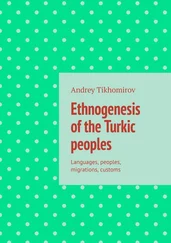A charming young student of Grük Once tried to acquire Volapük But it sounded so bad That her friends called her mad, And she quit it in less than a wük.
Within a few years, most of the Volapükists had switched to Esperanto.
Those umlauts, the focus of many a Volapük lampoon, no doubt cost Schleyer a good number of English- and French-speaking customers. Not only did they add a threatening air of foreignness to the appearance of a Volapük text (“ If ätävol-la in Yulop, älilädol-la pükik mödis ”—“If you should travel in Europe you will hear many languages”); they also helped disguise the fact that Volapük was for the most part based on English roots. Pük (language), for example, comes from “speak,” but it’s hard to tell. It’s likewise hard to see the “love” in löf , the “smile” in smül , the “proof” in blöf , or the “explaining” in seplänön . The problem went beyond umlauts, though. Schleyer, in trying to adhere to his principles of easy pronunciation (no “th” sound, minimal use of r, one-syllable roots), turned “friend” into flen , “knowledge” into nol , and “world” into vol . (The word Volapük is a compound meaning “world language.”)
And for the childish mind the temptations of Volapük are great. If you think the word pük is funny, then you will love how it figures into all kinds of other words related to the concept of language:

Because I have one of those childish minds, I can’t help throwing in another example here. “To succeed”? Plöpön .
Like Esperanto, Volapük had a system of affixes that extended the meaning of a root in a regular way, but when the prefixes and suffixes piled up on the poor little roots, the roots became even harder to pick out.
Despite all this, people were using it. In 1889, the year La Esperantisto was first published, the third international Volapük congress was held in Paris, and the proceedings were entirely in Volapük. The language worked well enough.
The downfall of Volapük lay elsewhere. Some of the Vol-apükists, dissatisfied with this or that detail of the language, began to petition Schleyer to make changes. He adamantly refused, and when the members of the recently formed Volapük Academy proposed reforms and then denied Schleyer the right to veto them, he left in a huff to form his own academy. The reformists, each with his own idea of how to proceed, published their own colorfully named modifications of Volapük—Nal Bino, Balta, Bopal, Spelin, Dil, Orba—and pretty soon a person who wanted to learn Volapük had no idea which version was worth his or her time. Esperanto, with its growing numbers, started to seem like a better investment. The fourth Volapük conference never happened.
In 1905, 688 people from twenty countries convened in Boulogne-sur-Mer, France, for the first international Esperanto congress. They wore the symbol of Esperanto, a green five-pointed star, and so were able to identify each other upon arrival at Paris train stations, where they gathered into conspicuous, animated groups for the trip to the coast. Until then, Esperanto had primarily been a tool of written correspondence. Many of them were speaking it for the first time, excited to see it actually working. A reporter from the New York Herald noted that “all appeared to converse with great facility.”
As a gesture of respect to the host country, the congress opened with a polite singing (in French) of the distinctly un-Esperanto-like call to violence of “La Marseillaise.” (“To arms, O citizens! / Form up in serried ranks! / March on, march on, / May their impure blood/Flow in our fields!”) An energetic, tearful singing of the Esperanto anthem, “La espero,” followed (“On the foundation of a neutral language / people understanding each other/will agree to form one great family circle”), and then, after greetings from the mayor and the president of the chamber of commerce, Zamenhof took the stage to wild cheers and applause. He spoke of invisible, powerful spirits in the air and images of a new future, and he ended with a prayer to a “powerful, incarnate mystery” that “peace be restored to the children of mankind.” The audience stood, waving handkerchiefs and shouting, “ Vivu Zamenhof! Vivu Esperanto !”
Not everyone was pleased. Some of the intellectual French Esperantists, who had reviewed Zamenhof’s speech prior to the congress, had urged him to focus on the practical side of the language, its utility in travel and commerce, its potential in the sharing of scientific knowledge. Sentimental and religious overtones would make their cause look foolish, they argued. They wanted to be taken seriously.
They were also becoming restless about language reforms they thought were necessary. Unlike Schleyer, Zamenhof did not de-clare his language his own property, but the property of its users. Zamenhof had welcomed critiques in the beginning, and he even published a reformed version of Esperanto, incorporating the requested changes, in 1894. But this new version was rejected, in a vote, by the growing community of committed Esperantists who were already using the language as it was. They had been inspired by his message of universal peace, and they saw the requests for changes as disrespectful heresy. The lesson of Volapük had also been learned by many of them—once you start with the reforms, it’s hard to stop. From then on, Zamenhof refused to impose changes, even, in 1906, when some reformists offered him 250,000 francs to do so.
That same year, when Zamenhof addressed the second international Esperanto congress in Geneva, he angrily rejected the calls to divorce Esperanto from its ideals, saying, “We want nothing to do with that Esperanto which must serve only commercial ends and practical utility!” The Schism came in 1907, when a delegation of prestigious university professors, including one chemist who would later win the Nobel Prize, chose to back an anonymously submitted proposal for a revised version of Esperanto called Ido (Offspring). While many of the prominent, well-educated, and practical-minded Esperantists joined the Ido faction, the rest rallied around their betrayed hero. More than thirteen hundred unashamed idealists from forty countries showed up at the 1908 congress in Dresden. They wore green stars and waved green flags, attended Esperanto poetry readings and theatrical performances, sang hymns, and by all accounts had a grand time.
The Idists, meanwhile, focused on the much less enjoyable pursuits of being logical and respectable. The official slogan of the first international Ido congress was “We have come here to work, not to amuse ourselves.” But the congress didn’t occur until 1921, by which time most of Ido’s momentum had been sapped by infighting about further reforms. Most of the original supporters had by then left to work on their own language projects, which they deemed superior.
* Mi present-as al mi (I present to myself) is the way “I imagine” is expressed in languages like German and Russian.
A Nudist, a Gay Ornithologist, a Railroad Enthusiast, and a Punk Cannabis Smoker Walk into a Bar…

Esperantists today have it rough outside of Esperantoland. No matter how elegant their arguments, how calm and reasoned their defenses of the internada lingvo , they are inevitably met with one of two responses: dismissive humor or sneering disgust. Here is a gentle example of the former, as meted out by the Times Higher Education Supplement :
Читать дальше














